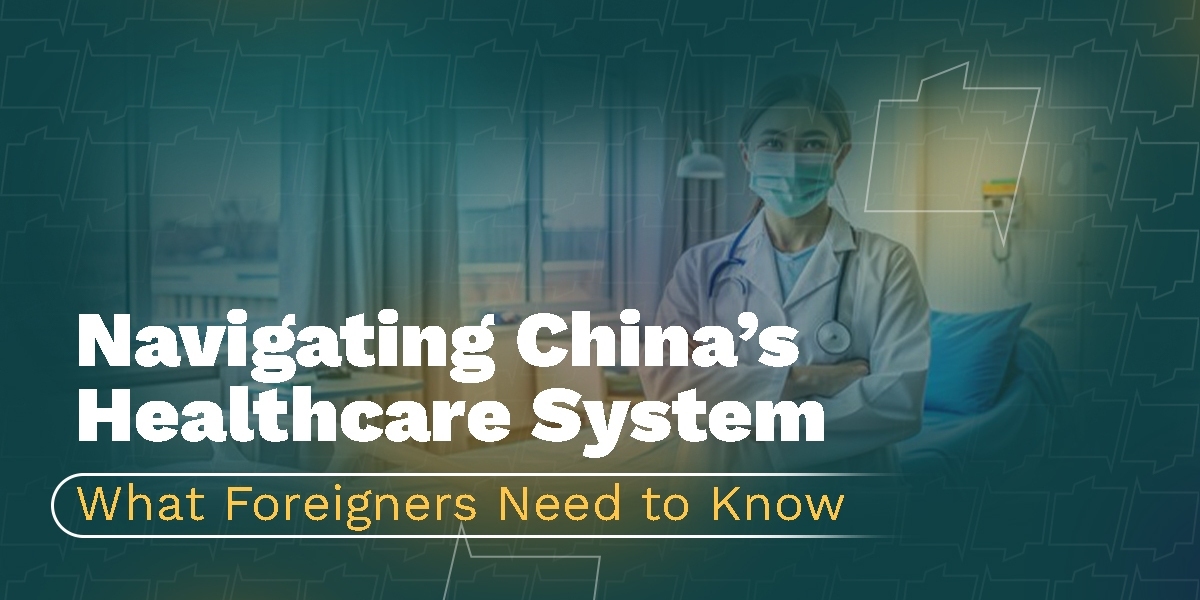Living in China as a foreigner comes with its share of exciting adventures, but navigating the healthcare system—especially without speaking Chinese—can seem overwhelming.
Fortunately, China’s major cities, like Beijing, Shanghai, Guangzhou, and Shenzhen, offer a variety of healthcare options for foreigners, from international hospitals to local clinics. This guide will help you understand how to access healthcare in China, what to expect, and how to overcome language barriers.
1. Understanding China’s Healthcare System
China’s healthcare system is a mix of public hospitals, private clinics, and international hospitals. Here’s a breakdown of each:
- Public Hospitals: These government-run hospitals are widely available, but they can be crowded, with long waiting times, and communication may be difficult as most staff may not speak English.
- Private Clinics and Hospitals: Private facilities often offer better service, shorter wait times, and more modern equipment. Some private hospitals cater specifically to foreigners, with English-speaking staff and international doctors, but they tend to be more expensive.
- International Hospitals: Located in major cities, international hospitals are the preferred choice for many foreigners. They offer high-quality care, English-speaking doctors, and familiar medical practices, but the cost is significantly higher than in local hospitals.
2. Healthcare Options for Foreigners
When seeking healthcare in China, you have several options:
Foreigners can use public hospitals, though it’s advisable to go with someone who speaks Chinese or
hire a translator, as English is rarely spoken. The costs are much lower than private hospitals, and while the level of care is generally good, the service can be slow due to large patient volumes.
- International Hospitals and Clinics
For a more comfortable experience, international hospitals like United Family Healthcare in Beijing, Shanghai, and Guangzhou offer English-speaking staff and Western-style care. These hospitals are often the first choice for foreigners seeking comprehensive care, especially in emergencies. Other well-known international clinics include ParkwayHealth in Shanghai and Global Doctor in several major cities.
Private clinics, such as Jiahui Health in Shanghai, offer high-quality care with shorter wait times and personalized services. These clinics often have bilingual staff, and the prices fall between those of public and international hospitals. Many expats choose private clinics for non-emergency visits and routine checkups.
3. What to Do in an Emergency
In a medical emergency, the first thing you should do is
call 120, the national emergency hotline. However, the operators will likely speak only Chinese. If you don’t speak Chinese, try to have a
bilingual friend or colleague nearby to assist with communication.
For faster assistance in major cities, many expats prefer to go directly to an international hospital’s emergency department, where they can receive care in English. It’s also a good idea to keep a list of hospitals with English-speaking services and their phone numbers handy in case of an emergency.
4. Health Insurance for Foreigners
Healthcare in China can be expensive without insurance, especially in private and international hospitals. It’s essential to have health insurance that covers you for medical treatment in China.
- Local Health Insurance: If you’re working in China, your employer may provide local insurance that covers care at public hospitals. However, this may not cover international hospitals or private clinics, and you may need to pay out-of-pocket for treatment.
- International Health Insurance: Many expats opt for international health insurance that covers private and international hospitals in China. Companies like Allianz, Cigna, and Regency provide comprehensive coverage for foreigners. This type of insurance is especially useful if you plan to use international hospitals or need coverage for medical evacuation.
5. Overcoming Language Barriers
The language barrier is one of the biggest challenges for foreigners accessing healthcare in China. Here are some strategies to help you navigate this:
- Use Translation Apps: Apps like Google Translate or Baidu Translate can help you communicate basic symptoms and medical concerns. These apps allow voice and text translation and can be a lifesaver in public hospitals.
- Bring a Translator: If possible, bring a bilingual friend or hire a professional medical translator. Many international hospitals offer translation services for non-Chinese speakers.
- Learn Key Medical Phrases: Knowing a few basic medical phrases in Chinese can be helpful, especially in an emergency. For example:
“I need a doctor” – 我需要医生 (wǒ xūyào yīshēng)
“I feel pain here” – 我这里疼 (wǒ zhèlǐ téng)
“I am allergic to…” – 我对…过敏 (wǒ duì… guòmǐn)
- Visit English-Speaking Clinics: Many clinics in major cities cater to foreigners and have English-speaking staff. Check online expat communities for recommendations on trusted clinics.
6. Routine Checkups and Specialist Care
For routine checkups or specialist care, you have several options depending on your budget and needs.
- International Hospitals: Ideal for annual checkups, dental visits, and specialist consultations. They offer familiar procedures and Western-style care.
- Public Hospitals: If you’re on a budget, public hospitals can be a good option for routine care, but bring a translator or friend for assistance.
- Traditional Chinese Medicine (TCM): For those interested in holistic care, TCM hospitals and clinics offer treatments like acupuncture, herbal medicine, and massage therapy. TCM is widely practiced in China and can be a valuable addition to your healthcare routine.
7. Prescription Medication
Foreigners in China can obtain prescription medication at pharmacies attached to hospitals or at local drugstores. Here’s what you need to know:
- Hospital Pharmacies: After a doctor’s consultation, you will usually fill your prescription at the hospital’s pharmacy. Bring your prescription and identification for the purchase.
- Local Pharmacies: Major cities have many pharmacies, including large chains like Watsons or GuoDa, where you can buy both over-the-counter and prescription medication. Keep in mind that some Western medications may not be available, and substitutes may be offered. It’s best to know the generic names of your medication.
- Online Pharmacies: Some international hospitals also offer online pharmacies, allowing you to order prescription drugs with ease and have them delivered.
8. Expat Resources for Healthcare Information
If you’re looking for additional support navigating China’s healthcare system, there are plenty of resources available. Many expat communities and forums offer advice on hospitals, clinics, and healthcare providers:
WeChat Groups: Join city-specific WeChat groups for expats to ask for recommendations on doctors and clinics.
Expat Website: Websites like
Hafrik have forums where you can find information on local healthcare options.
Embassies: Many foreign embassies maintain a list of recommended hospitals and clinics for their citizens living in China.
Conclusion
Navigating the healthcare system in China as a foreigner doesn’t have to be difficult. By understanding the different types of healthcare facilities, knowing what to do in an emergency, and preparing for language barriers, you can receive the care you need with confidence. Whether you opt for public hospitals, private clinics, or international hospitals, having the right health insurance and a few key resources can make all the difference in managing your health while living in China.
Stay informed with
Hafrik’s City Guide for more helpful tips on navigating life in China as a foreigner!








